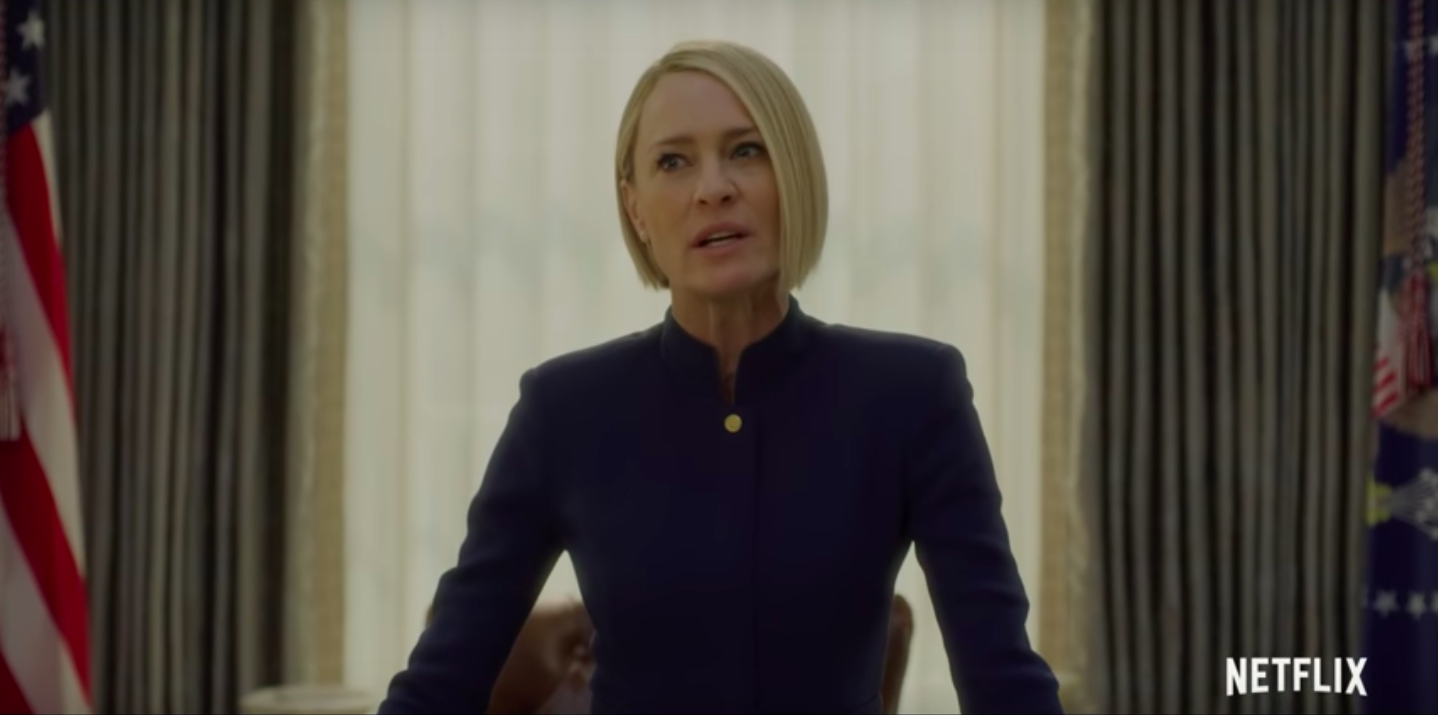Considering that House of Cards is known for portraying American turmoil, it seems fitting that the show’s sixth and final season was released after a storm of controversies and a suspenseful fifth-season finale.
House of Cards’ handling of the accusations of sexual misconduct brought against star Kevin Spacey was commendable — the show quickly stopped production and fired Spacey. Unfortunately, season six is still a disappointment.
The one glimmer of hope that held season six together prior to its release was the focus on Claire Underwood (Robin Wright). Season five’s finale was one of the show’s best episodes, and its ending proved convenient. Claire’s positioning to be the next president of the United States and her husband’s departure made me hope that season six would not be as bad as anticipated. However, the potential for a solid final season made the episodes flop even harder.
Perhaps the death of Frank Underwood makes sense following his wife’s ascension to power. After all, House of Cards is known for convenient disappearances and bloody murders. But it feels simply wrong to leave his death unexplained until the final scene of the final episode, especially considering that he drove the show’s plot for the last five seasons.
Maybe writers wanted the viewers to decide their own narratives of Frank Underwood’s death. This tactic may work for minor characters, but is pitiful in this instance. Perhaps they hoped that the desire to know what happened to him would keep viewers enthralled. However, each hour that passed without an explanation bothered me more and more.
The death of Frank Underwood feels wrong enough, but continuing to mention him throughout the season feels even worse. While viewers try to move on without him, the plot struggles. Characters insist on cementing his legacy, not forgetting his impact and questioning what he would be doing if he were in office. Claire is also pregnant in season six, and viewers are left wondering if Frank is even the father.
These distractions and allusions muddy Claire Underwood’s power, which proves to be season six’s saving grace. Robin Wright’s performance is the one indisputably bright part of the final season, and House of Cards fails to even let that shine uninterrupted. She is an elegant lead. Seeing Claire in power makes me wish that this switch had happened sooner.
Claire’s character is used to continue the tendency of House of Cards to portray the realities of current politics and headlines. She manipulates feminist ideals for her political gain, hoping that other women will blindly follow her. Despite her griminess, seeing a female in power resonates given the relevance of the #MeToo movement. Better yet, it is powerful to see the irony of Claire shining thanks to this wave of empowerment that also “killed” Frank.
House of Cards succeeds the most when it aligns with the real world. Luckily, it continues to portray the malice of power, which is amplified by the allegations made against Spacey. Some of the realistic aspects of season six are obvious, as Claire faces problems spanning from nuclear war to the patriarchy. Sadly, though, these parallels are muddied by abandoned storylines from past seasons and unanswered questions.
The plot intricacies that marked House of Cards as a remarkable show for the past five seasons were dearly missed. Sloppily leaving these questions unanswered is out of character. This is not the same show that many viewers were hoping to continue watching, leaving it clear that no season six would have been better than this.




